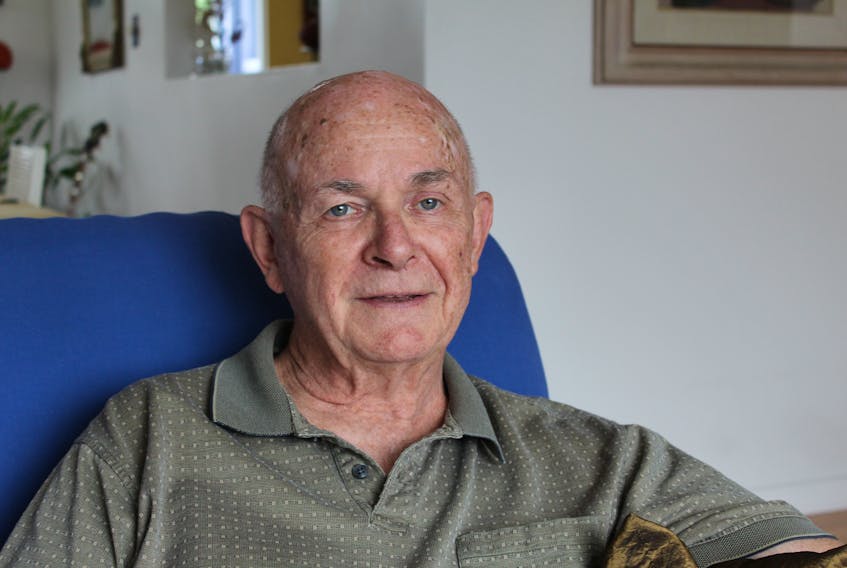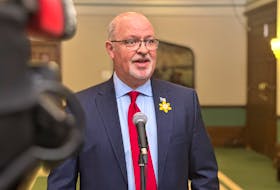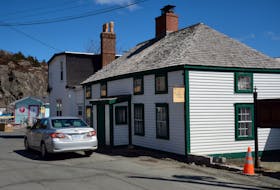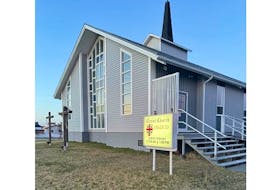ST. JOHN'S, N.L. — Neil Rosenberg was the second professor hired in Memorial University’s folklore department when he started in September 1968.
Before him, it was just Herbert Halpert, the man who founded the department in April that year.
When Rosenberg was hired he was also responsible for the newly-created archive. At the time, the collection was solely contributed by Halpert — his field work and that of his students. It consisted of more than 1,000 questionnaires about mummering (Halpert was writing a book on the topic and had his students bring the questionnaires home with them over Christmas to complete in their respective communities). It also had about 600 tapes, student term papers, and various other student work.
During Rosenberg’s time in the department, he said the archive grew “exponentially.”
It’s been more than 50 years of folklore education at Memorial University – roughly 700 students have graduated its programs – and their celebrating the occasion as folklorists would – with ‘Food, Stories and Songs of this Place’, an evening of stories and songs on June 1 at the School of Music.
The event is hosted by provincial folklorist Dale Jarvis and will feature Anita Best, Kelly Russell, Sophie Angnatok and Tama Fost.

In just half a century, the country’s only Anglophone comprehensive folklore program has done impressive work.
It was involved in establishing the national association, Folklore Studies Association of Canada.
It led to the creation of the Wooden Boat Museum in Winterton, after folklore student David Taylor did research in the community.
The Dictionary of Newfoundland English is based largely on recordings in the Folklore and Language Archive (MUNFLA).
“The archive, MUNFLA, is I think the greatest contribution to the province and to the country,” retired professor Philip Hiscock told The Telegram via email.
“With tens of thousands of original recordings, plus a library of commercial and broadcast sound recordings, it is an irreplaceable record of cultural creation and vernacular memory.
“But the very fact that so many students went through the (folklore) programmes is very important, too. It is they who brought a strong sense of local culture to their communities, during a time of weakening pride all over North America in local culture.”
Rosenberg said the department serves an intellectual need.
“A curiosity that people in Newfoundland have for their culture and their past.”
He also credits Joey Smallwood for the department’s creation because he said when Smallwood envisioned that Memorial would become a full-fledged university, folklore was one of the fields of study he specified.
From Nigeria to Newfoundland
Today, the department attracts students from all over the world.
Zainab Jerrett travelled from her home in Nigeria to complete her PhD there in the 1990s.
Jerrett was a sessional lecturer in the department for several years, but is perhaps now best known in the community for her work with the We Care Foundation NL and organizing the busload of school supplies for Africa, as well as being a regular vendor of multi-ethnic food at the St. John’s Farmers’ Market.
“Most of the things I do now, if not all, are inspired and or influenced by my studies of folklore at Memorial,” she said.
“Most of the things I do now, if not all, are inspired and or influenced by my studies of folklore at Memorial." — Zainab Jerrett
“Whether organizing our annual International Food and Craft Fair or the annual Tombolo Multicultural Festival, or what we do at the International Bazaar right now, I think everything has to do with what I’ve learned in folklore or while studying folklore.
“Folklore, among other things, is the study of culture or folk life, folk customs and traditions. So, what I do now, I think if I hadn’t studied folklore I might not have the skills to organize events or to promote cultural diversity and multiculturalism in our province.”
Hiscock also spoke of the importance of folklore studies.
“In a world where popular culture pushes the highly commercialized, fantastic, and stylized culture of the mass media, oral traditions give people balance. Having the metalanguage to think and talk about those traditions, and that balance, is hugely empowering.”
For tickets to the anniversary celebration, visit storytellingstjohns.ca.
Twitter: @juanitamercer_
RELATED









